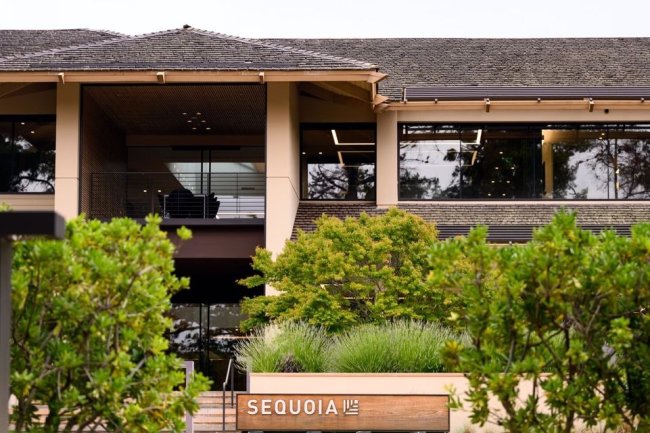‘Partition Voices’ Review: Free of Empire But Not Strife
With India’s independence came mass migration and horrific violence between former neighbors. There were also acts of bravery and kindness. Muslim refugees waiting to move into housing near Karachi, Pakistan. Photo: Keystone-France/Gamma-Keystone via Getty Images By Tunku Varadarajan Aug. 14, 2023 6:21 pm ET Two decades after the new Muslim nation of Pakistan was sundered from majority-Hindu India, W.H. Auden published a caustic little poem titled “Partition.” This was the label—always upper-case—that had been given to the division of colonial India in August 1947. It was adopted by the millions of people whose lives were reshaped or destroyed by the traumas of this sectarian reconfiguration, as well as by the ruling British who signed off on the project. The word partition is commonly used to describe a separation made


Muslim refugees waiting to move into housing near Karachi, Pakistan.
Photo: Keystone-France/Gamma-Keystone via Getty Images
Two decades after the new Muslim nation of Pakistan was sundered from majority-Hindu India, W.H. Auden published a caustic little poem titled “Partition.” This was the label—always upper-case—that had been given to the division of colonial India in August 1947. It was adopted by the millions of people whose lives were reshaped or destroyed by the traumas of this sectarian reconfiguration, as well as by the ruling British who signed off on the project.
The word partition is commonly used to describe a separation made within a dwelling. And that sense—of a home divided—still suffuses attempts to understand this tectonic event. Auden wrote of how Cyril Radcliffe—the British barrister who had “never set eyes on this land he was called to partition”—had been assigned the task of separating “two peoples fanatically at odds, / With their different diets and incompatible gods.” It’s a jaunty line, a little dated in its Orientalism, but it encapsulates the deep-rooted differences—between Muslims, on the one hand, and Hindus and Sikhs, on the other—that were to find bloodthirsty expression in the course of Partition.
Lord Mountbatten, the last viceroy of the Raj, was keen to go down in history as the sainted man on whose watch India attained its freedom. And so he brought forward the calendar of independence, moving the official date from June 1948 to August 1947. Mountbatten’s haste—arguably self-serving and reckless—left poor Radcliffe the map-wallah a mere five weeks to complete a task of such magnitude that five years might have been insufficient. The fates of millions depended on the stroke of his technocratic pen, which changed not just the map he scored with brand-new borders but also the world’s geopolitics; 75 years later, peoples who were once all Indian constitute two hostile, nuclear-armed nations.
There is no mention of Auden in “Partition Voices,” by Kavita Puri, but his absence detracts in no way from the eloquence of a book based on the oral testimonies of those who lived through the largest peacetime migrations in history. The word peacetime, here, denotes the fact that newly independent India and fledgling Pakistan were not officially at war. But in every other respect, the migrations were in response to violence—actual, threatened or anticipated.
A million lives were lost, the majority to religion-fueled murder. Ms. Puri writes that 75,000 women were raped by men from religions other than their own. Fathers were known to kill their own daughters to save them from “dishonor” at the hands of mobs. Fifteen million people crossed the borders of Punjab, in western India, and Bengal in the east. Both provinces—the most strategically significant in British India—were cleft in two.
Muslims were ethnically cleansed from east Punjab, which was assigned to India. They migrated in trains or on foot to their new country of Pakistan. Hindus and Sikhs were cleansed from west Punjab (now Pakistan), fleeing east to India across a border that had not existed before. There was, by contrast, a much smaller shifting of populations in Bengal—along India’s border with Burma—and much less of the frenzy that beset the Punjabis. Bengal had already been partitioned once, in 1905, so it coped better with the psychic blow in 1947. (In 1971, the map of Bengal would be redrawn once more, with the bloody emergence of Bangladesh.)
Fears were magnified by the astonishing fact that when Pakistan became independent on Aug. 14, 1947, and India on Aug. 15, millions of people in Punjab and Bengal didn’t know on which side of the border their homes would fall. They would find out later, Ms. Puri tells us, from the radio or from the religious identity of the mobs that converged on their villages.
Many families in villages that hugged the impending border took the precaution of packing in advance. Houses, cattle and keys were entrusted to neighbors who were of the religion that fit the new reality. Many who became refugees refused to believe that they would not return when the madness had abated. But their neighbors were themselves caught up in the bloodlust, killing—or driving out from their homes—people with whom they’d lived for generations, simply because the targets were Sikh in a village now turned Muslim or Muslim in a hamlet that had become Hindu.
Ms. Puri is a British journalist of Punjabi Hindu origins whose father was from Lahore, now in Pakistan. She was born in Britain, to which her parents migrated like thousands of others from the Indian subcontinent—a majority from the partitioned provinces. Her book—first published in 2019 and updated last year to mark the 75th year of Partition—is based on interviews she conducted with British Sikhs, Hindus and Muslims, as well as a few white Britons, for a series that aired on Britain’s Radio 4 in 2017. “Untold British Stories,” the subtitle of “Partition Voices,” reflects the fact that the tales of her interlocutors are a part of British history. As such, she insists, they must be taught in British schools.
Many of the people she interviewed are now dead, and those who survive are touching 90. Their stories are harrowing, recounting how fathers were slain, sisters abducted, homes burned and lives shattered. But there are also accounts of bravery and kindness—of Muslims who sheltered Hindus from attack, of Sikh men who saved Muslim women from rape. A Muslim neighbor could be your murderer or savior. A gentle Sikh farmer could join a gang that went in search of Muslims to kill or help you hide in his cattle shed. Time and again Ms. Puri confronts the vexing question: “How was it possible for people who once coexisted peacefully together to murder each other, and so viciously?”
Such questions were asked after the Holocaust and other episodes of genocide (in the Balkans in the 1990s, for instance, or in Rwanda). In the case of Partition, there has long been a veil of silence. Thanks to Ms. Puri and others, that silence is giving way to inquisitive—and assertive—voices. In Britain, at least, the partitioned have learned to speak frankly of the past—and to search for ways to reckon with it.
Mr. Varadarajan, a Journal contributor, is a fellow at the American Enterprise Institute and at NYU Law School’s Classical Liberal Institute.
What's Your Reaction?













